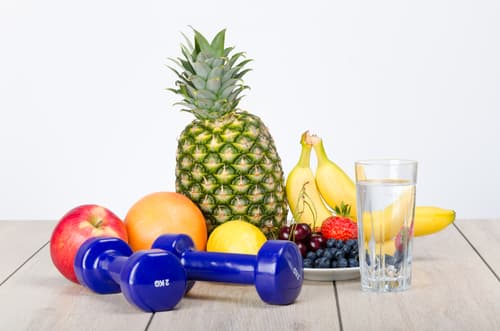10 Lifestyle Changes That Will Boost Your Recovery

In treatment, you will spend a great deal of time working to identify your triggers for drug and alcohol use. You’ll create plans to avoid encountering those triggers when possible, and plans to exit quickly and safely if they can’t be avoided. You know not to hang out in bars or spend time with friends who are actively using or getting high. You know that if you feel uncomfortable or at risk of relapse, it is important to reach out for help to feel more stable.
Here are 10 things you can do that will make that process easier for you – things you might not have thought about that could assist you in creating a life for yourself that is strong and steady in recovery:
- Sleep
- Eat
- Hang out
- Meditate
- Engage
- Check in
- Change it up
- Work
- Create
- Volunteer
Staying up late, getting up too early (or both), constantly changing when you go to bed, trying to “sleep in” when you don’t have anywhere to be in the morning, or trying to sleep in a location that is uncomfortable and not conducive to sleep are all choices that can be detrimental to your recovery. When you are tired, you are not thinking clearly. Your stress levels are naturally higher because you have not had the time you need to decompress and allow your body to repair itself. You may be cranky and irritable, and less likely to make positive choices that promote good health in recovery. Instead, get some sleep – a good eight hours or more every night – and make sure you are sleeping in a cool, dark place that is comfortable and conducive to restorative sleep.
But don’t just eat anything and everything. Also, don’t overly limit your intake of any foods or calories. Go for a range of different foods within all food groups to vary your nutrient intake. Start by picking fresh local produce that is in season, covering half your plate at each meal with fruits and vegetables. From there, add a serving of whole grains and lean protein, and limit the amount of sugar, fried foods, and processed foods on your plate. Soon you will find that your mood will start to level out, your energy will remain stable throughout the day, you will sleep better at night, and your physical health will remain more level as well – all things that will help you to avoid relapse and manage triggers.
Spending time with positive people who are supportive of your recovery, as well as those who are positive and happily working toward creating a stable life for themselves in recovery, can be inspiring to your ability to stay focused and provide you with a level of accountability as well.
Slowing down and looking inward can help you to notice when your cravings begin at their earliest stages. Meditation, yoga, tai chi, and other alternative therapies that are focused on mind-body wellness can also help you to lower your overall stress levels in recovery and provide you with coping mechanisms that will assist you in managing acute stress as well.
Staying health in recovery means staying active in recovery, long after treatment is over. This can mean continuing to see a personal therapist, attending 12-Step meetings, going to alumni groups, and continuing to be treated for co-occurring mental health issues.
With yourself, with your therapist, or with a life coach who is there to help you create and move toward a healthier life in recovery. Continually checking in with yourself means that you are asking yourself to be accountable for your actions and that you are making an effort to grow emotionally, which will in turn make you stronger in recovery.
If things begin to feel stale or stagnant, or you find yourself bored in recovery, do not be afraid to change things up. Start going to acupuncture, try a vegetarian diet for a week, begin a new therapy, or take a family member to your current therapy program. Do something to rekindle your interest in active treatment.
We all need something in our lives that makes us feel good about ourselves – something that gives us purpose and provides us with structure for our days. Finding employment is more than just a way to pay the bills. It provides essential self-reliance and independence in recovery as well as a way to define ourselves in the world as we figure out who we are without drugs and alcohol. If you find that you do not enjoy your work or what it says about you as a person, begin to look for other means of employment that can fulfill your needs on more than just a financial level.
For those who are artists, musicians, and writers, or those who have a hefty creative streak, continually creating is an essential part of life. Do not downplay the importance of adding something that is new, insightful, and/or beautiful to the world. Your voice, no matter how it manifests, is important and should be heard.
Giving back to others can not only help the people around us to be stronger (remember that a rising tide lifts all ships), but it can also help you to feel stronger and more solid in recovery. Consider your talents and skills, and how they can serve the people in your community.